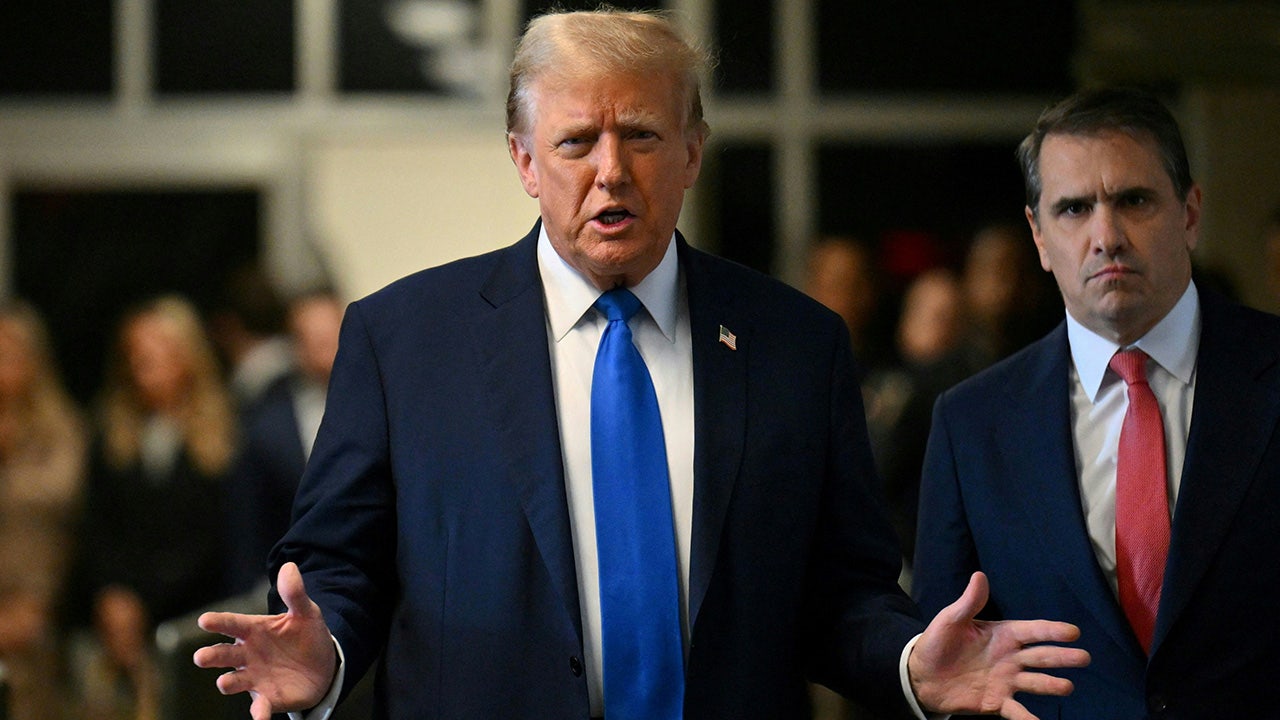World
Explained: The hurdles on the EU’s multi-billion recovery road
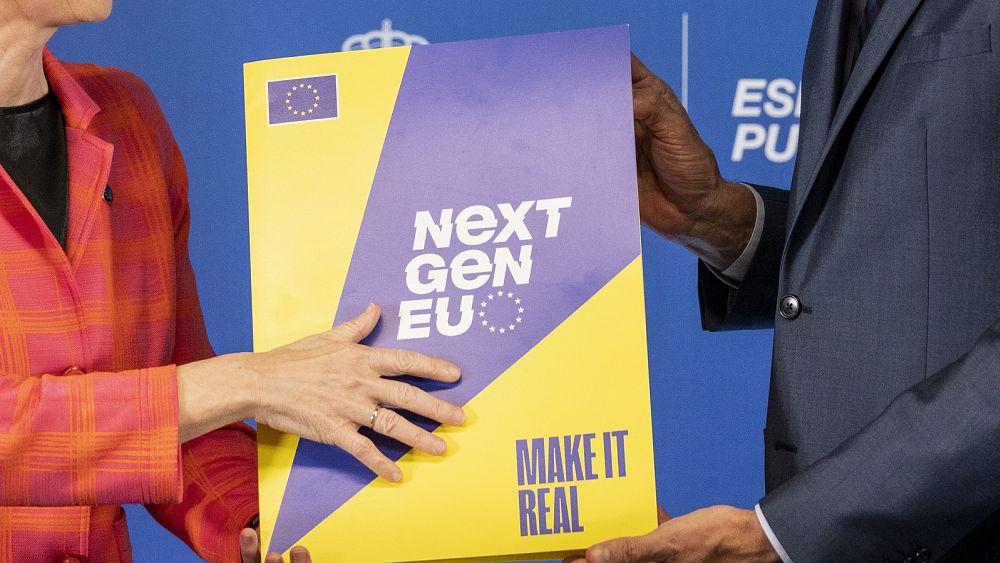
The Recovery and Resilience Facility (RRF) is the biggest EU investment in history, but money from the post-Covid recovery fund is not flowing into the economy as expected.
The facility was seen as a historic step forward for EU economic solidarity, allowing the European Commission to issue joint debt on behalf of member states to revive a pandemic-ridden economy with green and digital investments.
Yet as the halfway mark approaches — payments are to be spread between 2021 and 2026 — just €153.38 billion (21.1%) of the €723.8 billion available to member states in loans and grants have been disbursed.
Bureaucratic bottlenecks, shifting political priorities and high inflation have been cited as reasons for unforeseen changes to the EU’s post-pandemic ambitions.
But experts disagree on whether diversions in the spending plan is a lost opportunity or simply good economic sense.
A challenging timeline
“It’s mathematical. It’s scientific. Some projects won’t be completed by 2026,” said Italy’s European Affairs Minister Raffaele Fitto in March. Italy has been allocated the biggest tranche of the funds at €191.5 billion, equal to 10.79% of its GDP.
While all member states’ spending plans have been endorsed by the Commission, eight are yet to receive payments, including Hungary and Poland whose funds are blocked amid rows with Brussels over democratic reforms.
Momentum in paying out funds has stalled, despite Commission chief Ursula von der Leyen recently urging countries to “get the money on the ground”. Only €53 billion were disbursed over the past year, compared to more than €100 billion in the previous 12 months.
For some, the lag in payments is natural as countries need breathing space to ensure the money is well spent.
“Spending money is hard. Doing reforms is hard. Doing reforms to qualify for spending money on a fixed clock is really hard. So it is impressive that they are making as much progress as they are,” Erik Jones, Director at the Robert Schuman Centre for Advanced Studies told Euronews.
“When plans were agreed in 2020, everyone feared a deep and lasting recession and wanted to get the money out of the door quickly,” according to Daniel Gros, Board Member at the Centre for European Policy Studies (CEPS).
“But in the end, the recession was short-lived. It’s better for everybody that we take time to breathe and reassess spending priorities as circumstances change,” he added.
Last week, credit rating agency S&P Global pointed to corruption oversight, EU state aid rules and high inflation as possible reasons for delays, concluding that Spain – whose €69.5 billion allocation is the second-biggest -and Italy might need extra time.
“The money has to be out the door by the end of 2026. This calendar cannot be shifted. So everyone is working as fast as they can, but the bandwidth simply isn’t there in many cases,” said Jones.
Accumulating too much spending at the last minute could create volatility on the financial markets. While there is officially no flexibility on the 2026 deadline for investments, sources familiar with the issue have revealed discussions on a possible extension are ongoing.
A new experiment
The RRF is the first example of performance-based funding, where countries must hit so-called ‘milestones and targets’, including legislative reforms and green investments, to access funds. The most recent data reveals only 11% of milestones and targets have so far been fulfilled across member states.
Experts believe progress in hitting targets will naturally be slower as payments advance.
“In 2021 and 2022, the speed of disbursements was fast and in line with the planned timeline. We are now entering a more challenging phase where countries must deliver investments,” said Francesco Corti, a research fellow at CEPS.
Last Thursday, Italy managed to unlock a third payment of €18.5 billion after a months-long duel with Brussels over its targets. Rome’s creative attempts to demonstrate an investment in urban forestation by counting the seeds it had procured, rather than the trees planted, were rejected by Brussels.
Both Italy and Spain have allocated a significant portion of funds to constructing new nurseries and primary schools. With public procurement processes requiring months to approve, and construction costs high due to inflation and supply chain disruptions, hitting these investment targets quickly is proving challenging.
“Investments are facing the double challenge of rising inflation and disrupted supply chains. It is reasonable that member states ask for more flexibility or to modify their plans,” said Corti.
Tracing the money ‘complicated’
Furthermore, understanding to which projects the money flows is complicated, according to Monika Hohlmeier, Chair of the European Parliament’s Budgetary Control Committee. “We want to know how much money has reached the real economy […] We want to see the real figures,” she said in May.
The Commission has committed to publishing the biggest 100 beneficiaries of funds in each member state. But the information available is patchy, with the data currently missing for 16 countries.
“We should strive for greater transparency in spending so that NGOs and journalists can also stand guard over EU taxpayers’ money,” Krzysztof Izdebski of Open Spending EU Coalition said, “without data, it is difficult for them to perform such a role.”
“We have also checked whether countries themselves want to spend the funds transparently. The results are mixed – for example, Lithuania and Bulgaria are doing great, but Slovenia and Romania are reluctant to share this information. We need a more unified approach,” he added.
The gaps in reporting raise legitimate questions about possible fraud and corruption. The European Court of Auditors (ECA) found “room for improvement” in the Commission’s anti-fraud measures. “The EU executive did not plan to examine how the countries check that RRF-funded investment projects comply with EU and national rules,” a spokesperson said.
“The compliance of the funded projects with such rules is in a way self-policed by the member states,” the spokesperson added, “this is why we warned that this new spending model faces an assurance and accountability gap.”
An unforeseen energy crisis
Countries were recently asked to add so-called ‘REPower EU chapters’ to their recovery plans to fund projects aimed at reducing dependency on Russian energy and accelerating the green transition, with a total of €225 billion available for investments.
Eni, Enel and other state-controlled Italian energy groups are due to benefit from a partial transfer of the RRF funds to the REPower EU scheme, credit rating agency DBRS revealed this week.
According to NGO Climate Action Network (CAN) Europe, this has made a potential €67 billion available for fossil fuel projects, including liquefied natural gas (LNG) and, in the case of Hungary, Czechia and Slovakia, oil infrastructure.
“We can expect a significant number of LNG and pipeline projects to be included in respective REpower EU chapters,” Olivier Vardakoulias of CAN Europe said.
“This amendment to the RRF regulation constitutes a serious backtracking in the process of progressively excluding fossil fuel projects from the eligibility of EU funds,” he added.
Some experts believe the channelling of funds to more energy projects is necessary.
“The world has changed in a way that could not have been foreseen. We need a second line of energy resources as an insurance policy. We’re better safe than sorry,” said Daniel Gros.
So far, 17 member states have modified their plans, most recently Austria and Belgium. Some countries, such as Czechia, have already been commended for removing controversial investments in oil and gas pipelines from their recovery plans.

World
A wild orangutan used a medicinal plant to treat a wound, scientists say
WASHINGTON (AP) — An orangutan appeared to treat a wound with medicine from a tropical plant— the latest example of how some animals attempt to soothe their own ills with remedies found in the wild, scientists reported Thursday.
Scientists observed Rakus pluck and chew up leaves of a medicinal plant used by people throughout Southeast Asia to treat pain and inflammation. The adult male orangutan then used his fingers to apply the plant juices to an injury on the right cheek. Afterward, he pressed the chewed plant to cover the open wound like a makeshift bandage, according to a new study in Scientific Reports.
Previous research has documented several species of great apes foraging for medicines in forests to heal themselves, but scientists hadn’t yet seen an animal treat itself in this way.
“This is the first time that we have observed a wild animal applying a quite potent medicinal plant directly to a wound,” said co-author Isabelle Laumer, a biologist at the Max Planck Institute of Animal Behavior in Konstanz, Germany.
The orangutan’s intriguing behavior was recorded in 2022 by Ulil Azhari, a co-author and field researcher at the Suaq Project in Medan, Indonesia. Photographs show the animal’s wound closed within a month without any problems.
Scientists have been observing orangutans in Indonesia’s Gunung Leuser National Park since 1994, but they hadn’t previously seen this behavior.
“It’s a single observation,” said Emory University biologist Jacobus de Roode, who was not involved in the study. “But often we learn about new behaviors by starting with a single observation.”
“Very likely it’s self-medication,” said de Roode, adding that the orangutan applied the plant only to the wound and no other body part.
It’s possible Rakus learned the technique from other orangutans living outside the park and away from scientists’ daily scrutiny, said co-author Caroline Schuppli at Max Planck.
Rakus was born and lived as a juvenile outside the study area. Researchers believe the orangutan got hurt in a fight with another animal. It’s not known whether Rakus earlier treated other injuries.
Scientists have previously recorded other primates using plants to treat themselves.
Bornean orangutans rubbed themselves with juices from a medicinal plant, possibly to reduce body pains or chase away parasites.
Chimpanzees in multiple locations have been observed chewing on the shoots of bitter-tasting plants to soothe their stomachs. Gorillas, chimpanzees and bonobos swallow certain rough leaves whole to get rid of stomach parasites.
“If this behavior exists in some of our closest living relatives, what could that tell us about how medicine first evolved?” said Tara Stoinski, president and chief scientific officer of the nonprofit Dian Fossey Gorilla Fund, who had no role in the study.
___
The Associated Press Health and Science Department receives support from the Howard Hughes Medical Institute’s Science and Educational Media Group. The AP is solely responsible for all content.
World
Israel's president releases blistering statement on US university encampments: 'Resurgence of antisemitism'
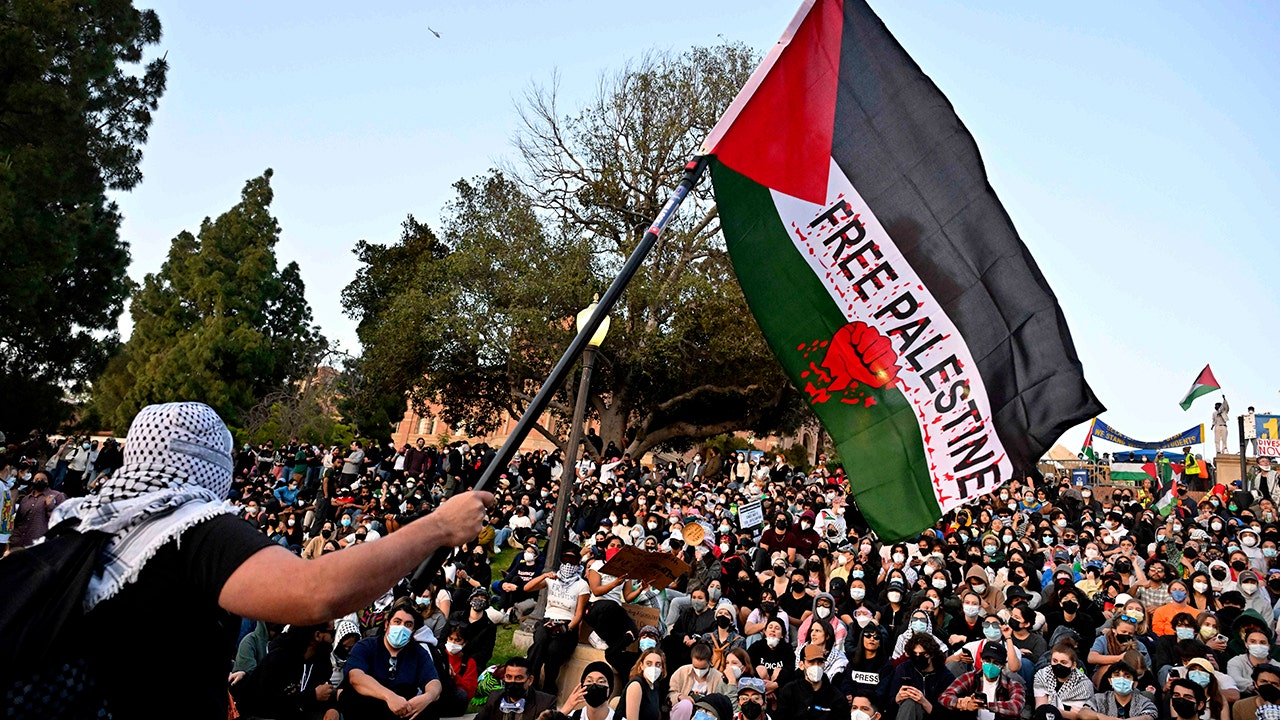
Israel’s president weighed in on the massive antisemitic encampments that have sprouted up at elite colleges and universities across the United States, condemning the “masked cowards” who “smash windows and barricade doors.”
Israeli President Isaac Herzog addressed those in the Jewish community on these campuses and around the world that feel victimized by the demonstrations.
“In the face of violence, harassment, and intimidation, as masked cowards smash windows and barricade doors, assault the truth and manipulate history, together, we stand strong,” President Herzog said in a video address.
“As they chant for infitada and genocide, we will work together to free our hostages held by Hamas and fight for civil liberties of the entire free world and our right to believe and belong and the right to live proudly, peacefully and securely as Jews and as Israelis anywhere,” he added.
UCLA FORCED TO MOVE TO REMOTE LEARNING AMID ANTISEMITIC PROTESTS, ENCAMPMENT ON CAMPUS
Israel’s president weighed in on the massive antisemitic encampments like the one at the University of California, Los Angeles, which police and other law enforcement officers cleared on May 2, 2024. (Photo by ETIENNE LAURENT/AFP via Getty Images)
Herzog’s address comes as a multi-agency group of law enforcement officers on Thursday moved onto the University of California, Los Angeles campus to remove an anti-Israel encampment that was declared unlawful.
“We see prominent academic institutions, halls of history, culture and education, contaminated by hatred and antisemitism fueled by arrogance and ignorance, driven by moral failings and disinformation,” Herzog said. “We watch in horror as the atrocities of Oct. 7 against Israel are celebrated and justified. We hear you. We recognize your heroic effort. We are with you. We are here for you.”
COLUMBIA UNIVERSITY FACILITIES WORKER SPEAKS OUT AFTER TERROR TAKEOVER: ‘THEY HELD ME HOSTAGE’
“Dear sisters and brothers, to our friends on campuses and in Jewish communities across the United States and all over the world, to those who stand by and defend the Jewish people and the state of Israel, to all people of good will, the people of Israel are with you,” he continued. “We hear you.”
Herzog added: “We see the shameless hostility and threats. We feel the insults, the breach of faith and breach of friendship. We share the apprehension and concern.
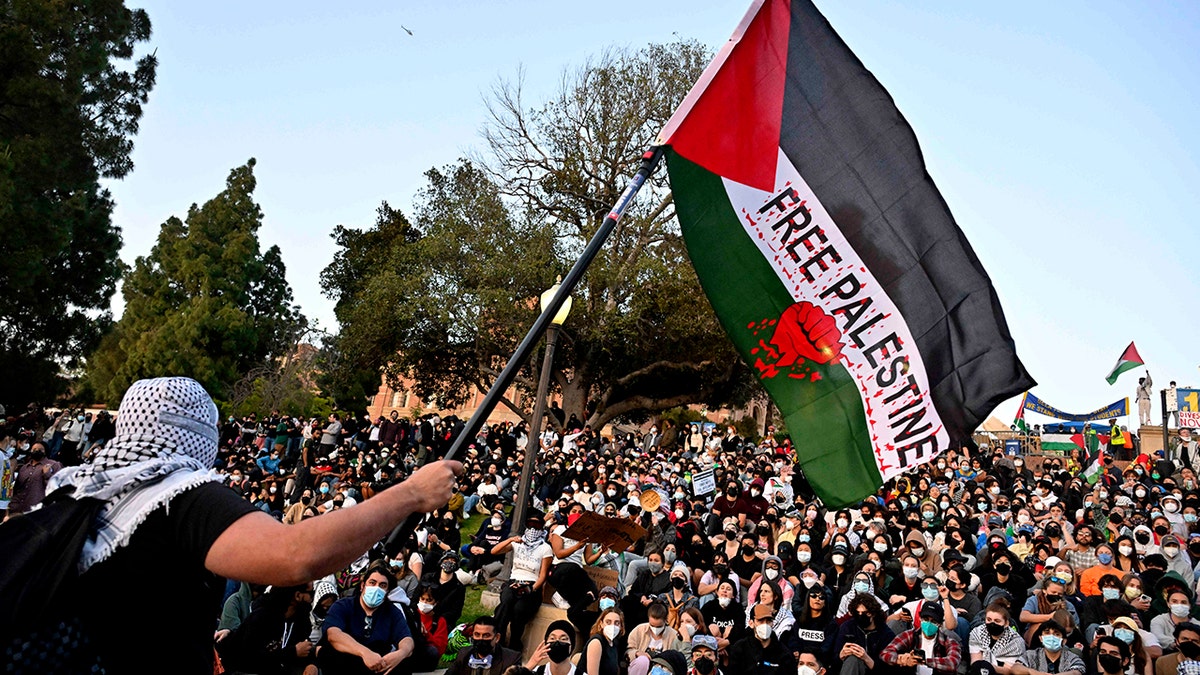
President Herzog’s comments come as anti-Israel agitators formed an encampment on the campus of UCLA in Los Angeles. (Keith Birmingham/MediaNews Group/Pasadena Star-News via Getty Images)
His comments come just days before Holocaust Remembrance Day, which will be recognized on Monday, May 6.
UCLA FALLS TO ANARCHY AFTER COUNTERPROTESTERS CONFRONT ANTI-ISRAELI ENCAMPMENT: ‘HORRIFIC ACTS OF VIOLENCE’
“Together we will overcome this resurgence of antisemitism. Do not fear. Stand proud. Stand strong for your freedom. Israel stands with you. Israel cares for you,” Herzog concluded.

Police officers detained anti-Israel protesters who chanted antisemitic remarks and slogans on the campus of the University of California, Los Angeles (UCLA) in Los Angeles. (ETIENNE LAURENT/AFP via Getty Images)
In contrast, Iran has expressed support for anti-Israeli demonstrations that have erupted across elite U.S. colleges and universities.
Last month, Iranian Foreign Minister Hossein Amir-Abdollahian defended the hundreds of students who have been arrested at UCLA, Columbia University, the University of Southern California, UT-Austin and others for disrupting campus facilities and trespassing.
“The suppression and harsh treatment of the American police and security forces against professors and students protesting the genocide and war crimes of the Israeli regime in various universities of this country is deeply worried and disgusted by the public opinion of the world,” the foreign minister said on X, according to a translation.
He added: “This repression is in line with the continuation of Washington’s full-fledged support for the Israeli regime and clearly shows the dual policy and contradictory behavior of the American government towards freedom of expression.”
Police at UCLA faced off against a left-wing mob on Thursday morning, when officers dismantled an anti-Israel encampment and took agitators into custody.
Officers wearing riot gear knocked down a plywood barrier surrounding UCLA’s Dickson Plaza, where the anti-Israel encampment was being held, entered the area and began conducting arrests throughout the morning.
World
In the upcoming European elections, peace and security matter the most

The opinions expressed in this article are those of the author and do not represent in any way the editorial position of Euronews.
With so many threats on the horizon, we need a union that can navigate the turbulent seas of the future and protect the European dream of peace and prosperity for its people and global neighbours, Alexander Borum writes.
As the European elections approach, a new group of Members of the European Parliament will soon take office, tasked with navigating the turbulent waters of global volatility and the immense challenges Europe is currently grappling with.
In this shifting geopolitical landscape, uncertainty and conflict threaten European values and way of life, underscoring the urgent need to bolster the continent’s security and adopt a strong stance in the bloc’s foreign and security policy.
EU voters must remember the significance of collective security when they cast their votes in early June, considering the broader implications of their choices for our future.
As voters, we must make informed decisions that will ensure the stability and prosperity of the union.
Like the rest of the world, the EU is currently grappling with a multitude of issues that are directly impacting the lives and future of its citizens.
From a deteriorating climate to a cost-of-living crisis, energy insecurity, migration pressures, and a surge of conflicts both within and outside Europe.
While all these issues are important, it is unrealistic to expect that we can address them all at once. As voters, we must ask ourselves, where should we direct our attention and energy for the most effective long-term impact?
War keeps knocking on our door
Looking back at our shared history can give us a clue. Here, we must acknowledge the European Union’s roots as a peace and economic development project.
The EU has, in this regard, been a successful endeavour. Through increased cooperation and burden sharing, we have witnessed a period of unity and progress never seen before on the continent.
While the EU was never without faults, we must reflect on the challenges faced by our British brothers and sisters in the wake of Brexit. It is clear to see that member states are stronger and better off standing together.
As EU voters, we must stand together as we look towards the future, recognising that while the EU peace project has been successful, not everyone agrees with the union’s approach.
War is knocking on our door, and as the Ukrainian people pay the ultimate price for resisting the aggression they face, we must acknowledge that the very same threat is encroaching on our external borders.
This war threatens the organic and consensual growth of the union. As such, EU voters must reflect on their role in European security and the need to embrace collective security responsibilities with a sense of urgency.
Being complacent and disinterested won’t do it any more
After enjoying decades of peace under the EU umbrella, European voters have grown complacent and disinterested in security policy and defence spending.
However, in light of the current reality, if EU voters genuinely desire peace and economic prosperity, they must collectively shoulder the responsibility for security and defence in the EU.
This implies making tough choices in the coming years, as matching up to Russia’s projected defence spending of 8% of GDP in 2024 will require sacrifices. It’s time for the EU, where most member states still fall short of the 2% NATO commitment, to embrace collective security responsibilities.
For decades, Europe has relied on others for its collective security. Still, with the horrors of war returning to European soil and Trumpian cracks emerging in the close-knit alliance with our US cousins, it is evident that the status quo is broken.
It is increasingly clear that EU voters must once again look to the age-old Latin adage _si vis parcem para bellum_— “if you want peace, prepare for war” — to better position the European Union in the world.
For a brighter future, the EU must take on a concerted effort to advance European security and defence, deter aggression, and safeguard our shared values and heritage.
For all EU citizens, it is crucial to ensure that security and defence are a clear priority in the European elections in June, ensuring that we collectively push for the continent’s strategic autonomy and further enable it to protect not only itself, its values, and its interests, but also its neighbours from hostile actors.
While strategic autonomy for Europe is a long-term ambition, we must face the fact that our inability to provide the support required for Ukraine to defend itself against an existential threat could easily define the fate of European security for all of us.
No more empty lip service, please
Guiding Europe towards a future of credible deterrence, a more balanced transatlantic partnership in NATO, and the ability to respond to critical threats to the union is crucial.
EU voters must strive for a future where threats to our borders, our near-abroad, or even the vital global supply lines we rely on can be addressed with a combination of cohesive diplomacy and credible deterrence.
With this in mind, voters must cast their ballots with determination, fully understanding the need and urgency for a robust European Union.
Come June, citizens must elect European lawmakers who will not pay lip service to our collective security needs and are not afraid to push uncomfortable yet necessary policies.
With so many threats on the horizon, we need a union that can navigate the turbulent seas of the future and protect the European dream of peace and prosperity for its people and global neighbours.
Without a vote in favour of our security, we cannot hope to continue our lives in peace, further progress and development.
Alexander Borum is Policy Leader Fellow at the European University Institute in Florence, focusing on the European Union Common Security and Defence Policy.
At Euronews, we believe all views matter. Contact us at view@euronews.com to send pitches or submissions and be part of the conversation.
-

 Education1 week ago
Education1 week agoVideo: Dozens of Yale Students Arrested as Campus Protests Spread
-

 News1 week ago
News1 week agoLarry Webb’s deathbed confession solves 2000 cold case murder of Susan and Natasha Carter, 10, whose remains were found hours after he died
-

 World7 days ago
World7 days agoHaiti Prime Minister Ariel Henry resigns, transitional council takes power
-

 News7 days ago
News7 days agoFirst cargo ship passes through new channel since Baltimore bridge collapse
-

 World1 week ago
World1 week agoUS secretly sent long-range ATACMS weapons to Ukraine
-

 World1 week ago
World1 week agoTurkey’s Erdogan meets Iraq PM for talks on water, security and trade
-

 World1 week ago
World1 week agoSpanish PM Pedro Sanchez suspends public duties to 'reflect'
-

 News1 week ago
News1 week agoAmerican Airlines passenger alleges discrimination over use of first-class restroom

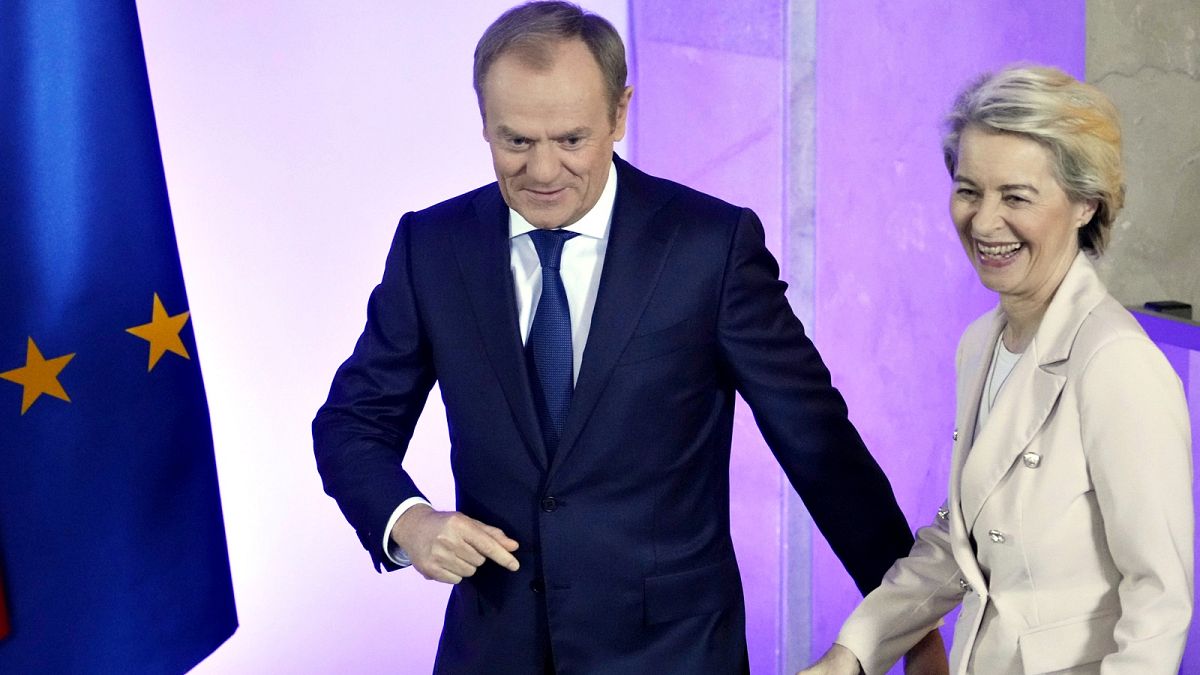

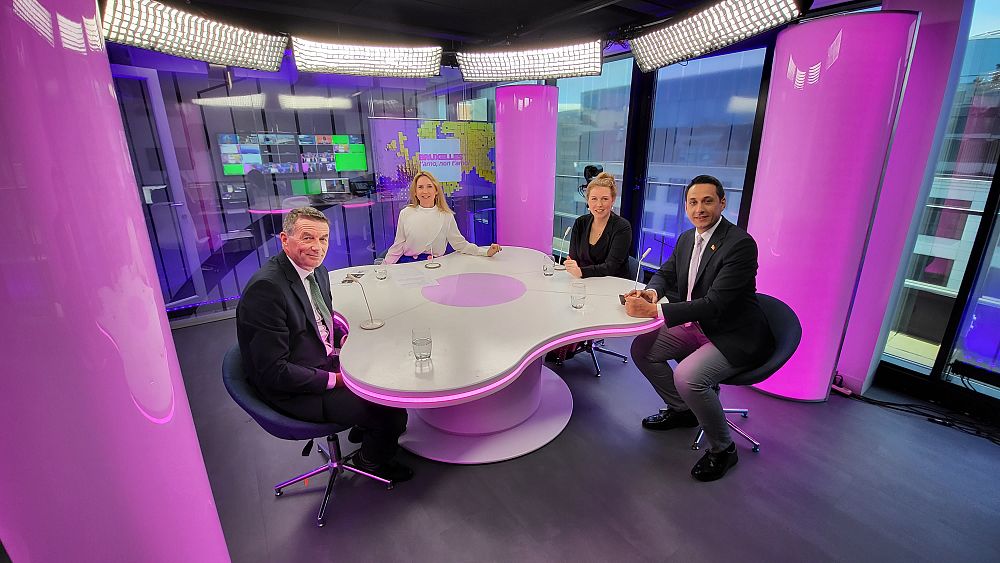
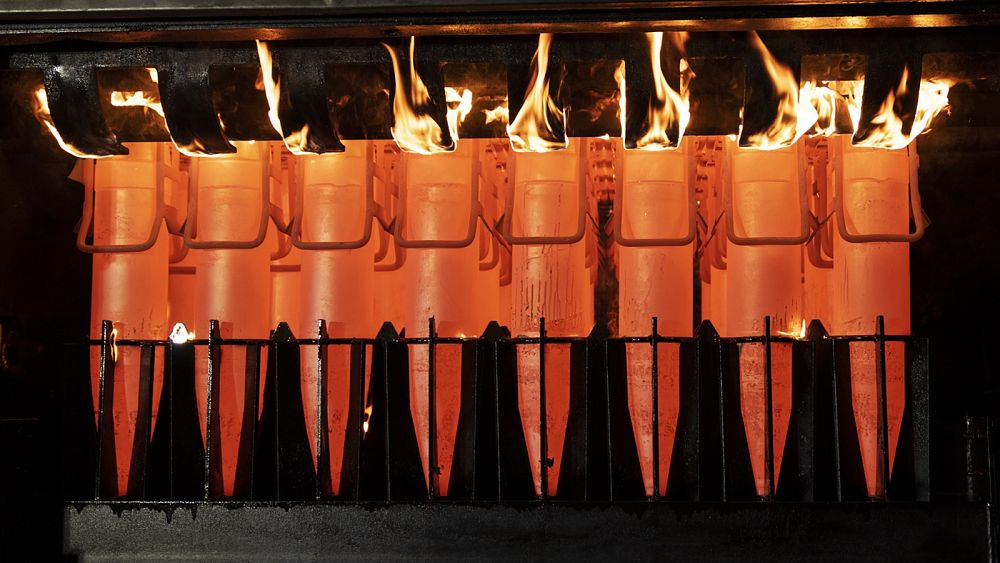
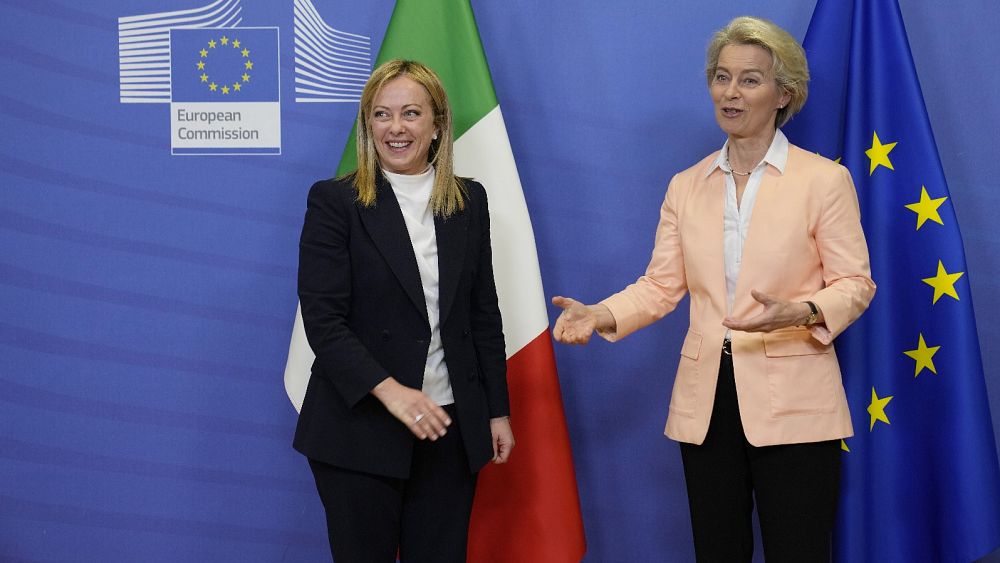
![Wisconsin, National Campus Protests: Follow The Money Trail [Up Against The Wall]](https://www.wisconsinrightnow.com/wp-content/uploads/2024/05/wisconsin-protests.jpg)









